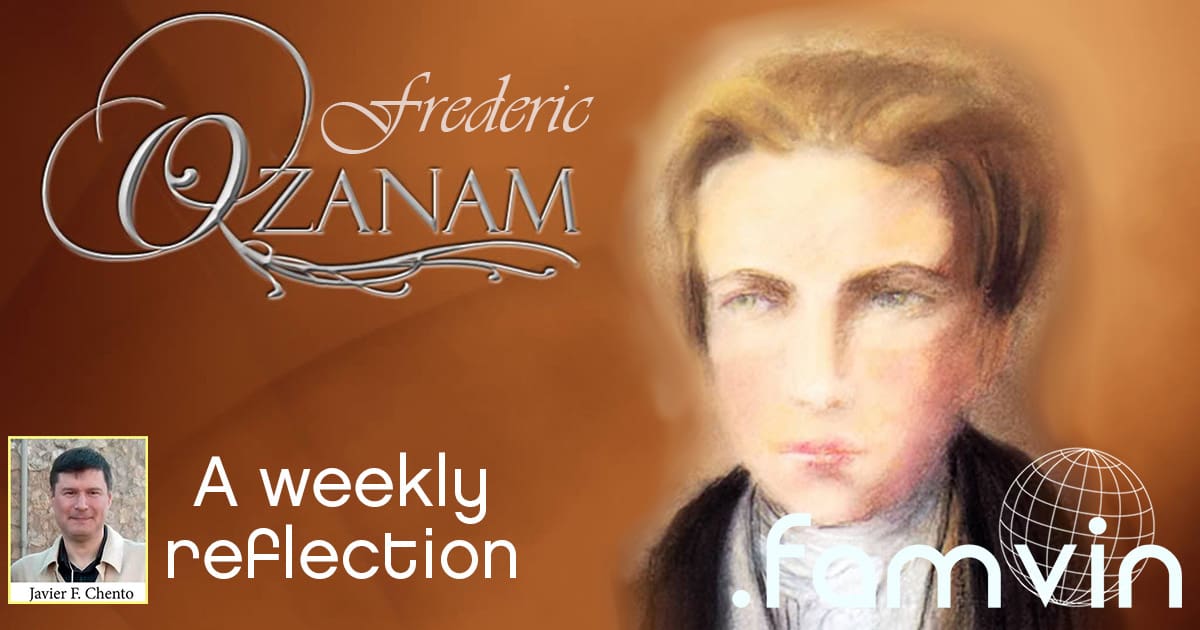Vincentians in Public Life • A Weekly Reflection with Ozanam
At the same time, another thirty conferences formed in the most distant points of the country, celebrated the same solemnity. How can we not have any hope in that force of association, exerted mainly in the big cities, in all the faculties of Law, in all the centers of study, on a generation called to fulfill the liberal professions and the influential positions? And if once immorality descended from the upper classes, the academies, the magistracy, the military leaders, the political men, to the bourgeoisie and the people, could not we, without too much madness, believe that divine providence calls us to the moral rehabilitation of our country, when eight years have sufficed to grow our number from eight to two thousand, when many of our people, without the help of intrigue and favoritism, already occupy the most important positions of society; that from everywhere we invaded the law, medicine, courts, chairs; that only one of our conferences is composed of the third part of the École Normale and the brightest students of the École Polytechnique? …

Frederic Ozanam, letter to Amélie Soulacroix, May 1, 1941.
Reflection:
- Ozanam was in Paris, as a substitute professor of foreign literature at the Sorbonne, when he wrote this letter, while his fiancée was living in Lyon with her family. There was little time left for their wedding, little more than a month and a half (they would marry on June 23, 1841).
- On Good Shepherd Sunday (which coincides with the fourth Sunday of Easter), the Society of St. Vincent de Paul held one of its four annual meetings in Paris. In addition to this general meeting, many other conferences met at the same time. Frederic tells details of this meeting to his fiancée, while making an interesting reflection on the growth of the Society of St. Vincent de Paul and its role and place in society.
- The SSVP had grown strongly in a short time: in just 8 years they went from being seven members to two thousand, and soon they would cross the French borders to settle in other countries as well. It is a thriving movement, which expands rapidly, mainly formed by young students.
- Ozanam dreams of this movement regenerating all the strata of society: young people who, with firm ideals based on the Gospel, are capable of honestly serving their fellow men, including “the moral rehabilitation of our country.” Then, corruption, selfishness and mediocrity among the ruling classes were common; we could think that – viewing the present status of our world – in this aspect the situation has not changed much. The Pastoral Constitution Gaudium et spes, from the Second Vatican Council, tells us, in its no. 73: “There is no better way to establish political life on a truly human basis than by fostering an inward sense of justice and kindliness, and of service to the common good, and by strengthening basic convictions as to the true nature of the political community and the aim, right exercise, and sphere of action of public authority.” This is: leaders with values that correctly exercise their functions. The personal and Christian growth, the following of Jesus Christ evangelizer of the poor, the concern for the needy: they are all attitudes and values that are at the origin and at the heart of the SSVP.
- The public facet of the faith can not be alien to the Vincentian movements. We are also called to regenerate society and to enrich it with the Christian vision of life, a mission that we share with all believers.
Questions for dialogue:
- Are we careful to attend and encourage the participation of young people in our Vincentian movements? What could we do to improve in this regard, and attract them?
- Are we aware of our duty to “regenerate society”? What will this have to do with the Systemic Change that we promote from the Vincentian Family?
Javier F. Chento
![]() @javierchento
@javierchento
![]() JavierChento
JavierChento








0 Comments